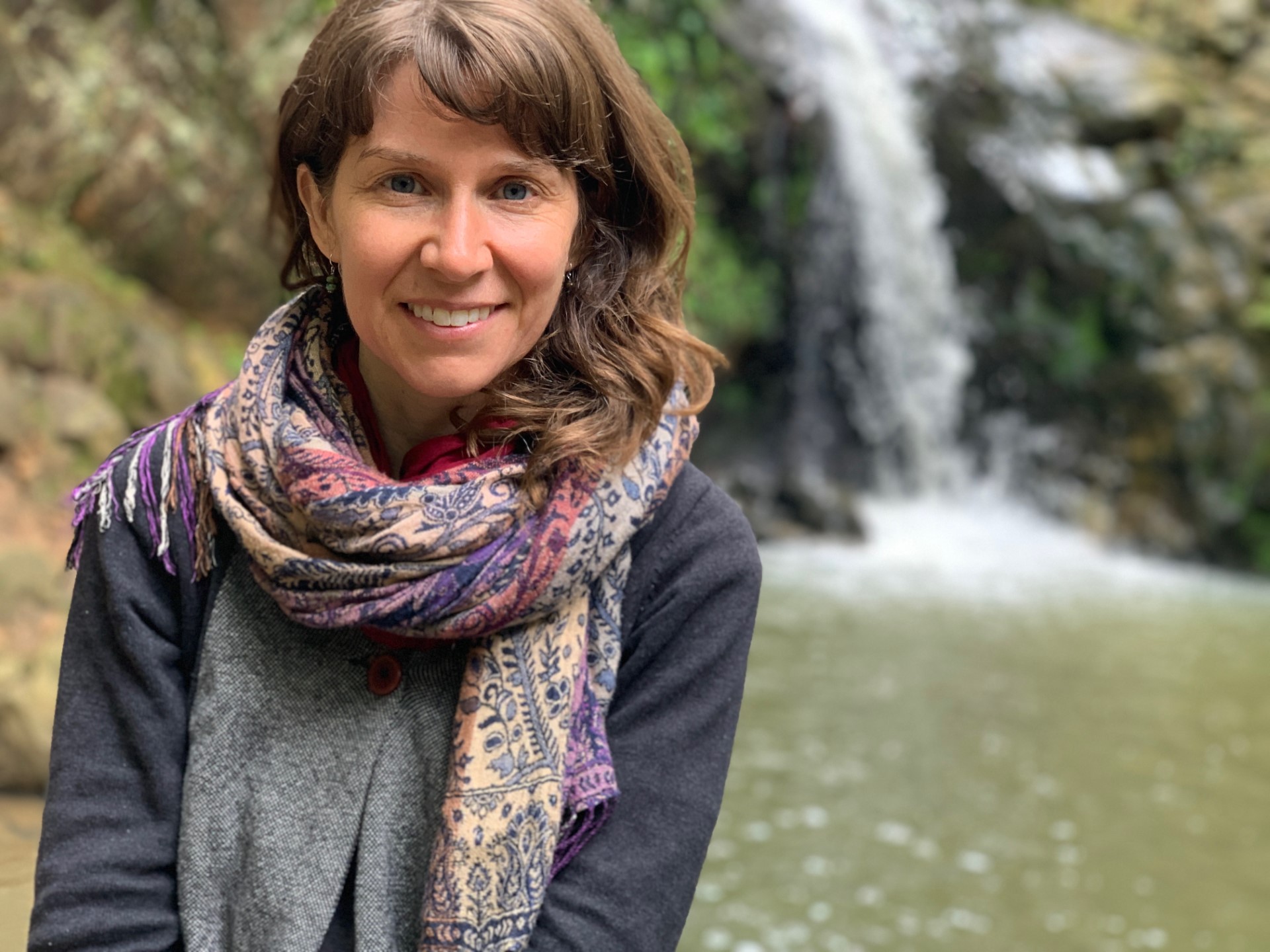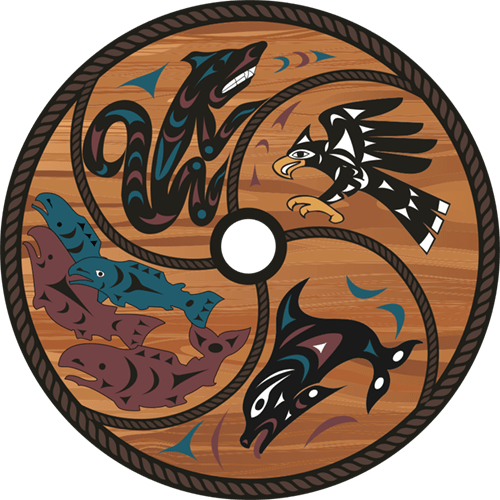Meet Robyn Heaslip Kefi, the new Program Manager for the Indigenous Management Board
Read the transcript below to learn more about Robyn and the work she’ll be doing with the Indigenous Management Board.

Interviewer: Can you tell us a bit about who you are and where you’re from?
My name is Robyn Heaslip Kefi and I live in Cowichan Bay in Quw’utsun lands. I am of Irish, French, Scottish and English ancestry. I grew up in Cree territory in Edmonton and moved with my parents and siblings as a young adult to Lekwungen and WSÁNEĆ lands in Victoria. After studying at University of Victoria (UVic) I moved to the mainland for graduate school and then lived and worked for many years in Stó:lō lands. Three years ago, my partner, kids and I moved back to the island to be closer to my parents and sibling’s family. My partner is Tunisian-Canadian and our family on his side lives in Haudenosaunee lands in Montreal and in Tunisia.
Interviewer: Can you share with us some of the background & experience you bring to this position?
I completed a master’s degree in resource and environmental management at SFU, where I worked with Kwakwaka’wakw First Nations on the management of their clam beaches. After completing my master’s, I began working with Stó:lō organizations. I have worked with Stó:lō Tribal Council, Ts’elxwéyeqw Tribe and Stó:lō Nation. They’re all multi-First Nation governance bodies working on asserting rights and responsibilities in their shared territory. In those jobs, I worked on research, policy development, and project management related to proposed large-scale developments in the territory and trying to understand the potential impacts of those. I contributed to community engagement efforts, working to develop processes for community guidance for the leadership and researched potential pathways for addressing those proposed projects.
I then did some work with the University of the Fraser Valley in teaching and research facilitation. I worked on a project that brought together Sto:lo leadership, elders and youth, researchers and public health agencies – action-based research focused on building Indigenous youth resilience through land based practice. During this time, I was also a graduate student in UVic’s Indigenous Governance program where my research focused on settler decolonization in Stó:lō téméxw with a focus on intergenerational learning/unlearning in settler families.
Interviewer: What kind of work will you be doing with the W̱SÁNEĆ Leadership Council / IMB?
My position is the program manager for the Indigenous Management Board Secretariat. The secretariat supports the coordination of the efforts of the Indigenous Management Board technical committee, as well as the Indigenous Management Board, which is the leadership level. I am helping to support their efforts to carry out the goals and priorities of the IEȽȻIȽTEL or Nuts’a maat kws ‘i’ shul’ hwilasmut tu Skwul ‘i’ kwthe’ Accord signed by the 11 First Nations. This involves strengthening communications, providing planning support, and tracking the progress of their work.
Interviewer: What kind of impact do you hope to have during your time with the WLC / IMB?
I hope to be a real support and resource to help the IMB(TC) become what it hopes to be. The vision of the Accord is really powerful. It requires a tremendous amount of effort and focus to help carry forward those goals. So if I can play a role in helping to support the people who hold that amazing vision and help realize it, then I would consider that a great impact that I hope to make.
Interviewer: What do you like to do when you’re not at work?
I like to hang out with my family. My kids are five and nine. We have a big veggie garden and some fruit trees, and I enjoy growing food and cooking. I like learning languages, playing soccer, hiking, and textile arts.
Interviewer: Is there anything else you’d like community members to know?
I’m really grateful and honoured to be contributing in this way, and I’m looking forward to meeting people.






